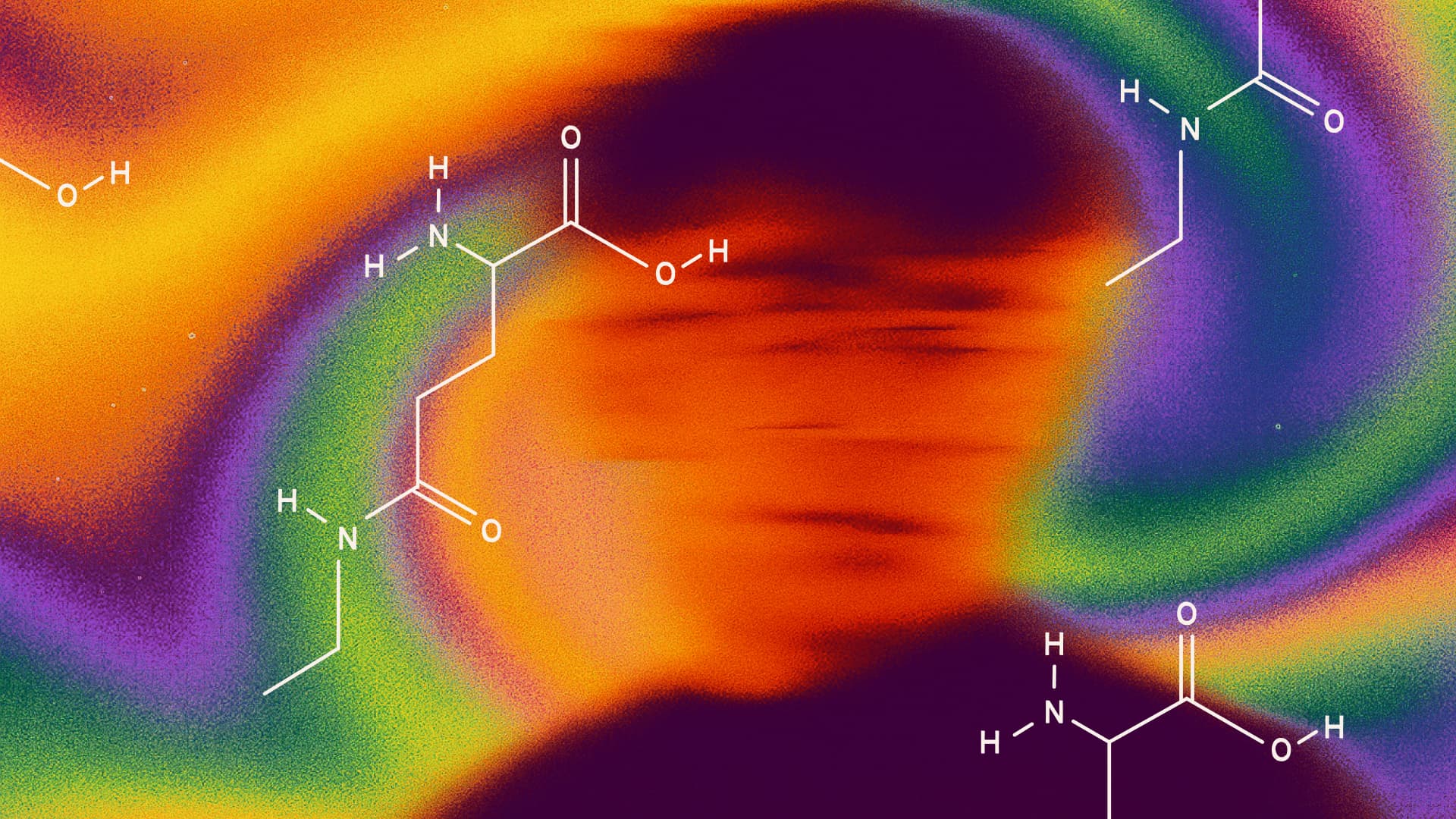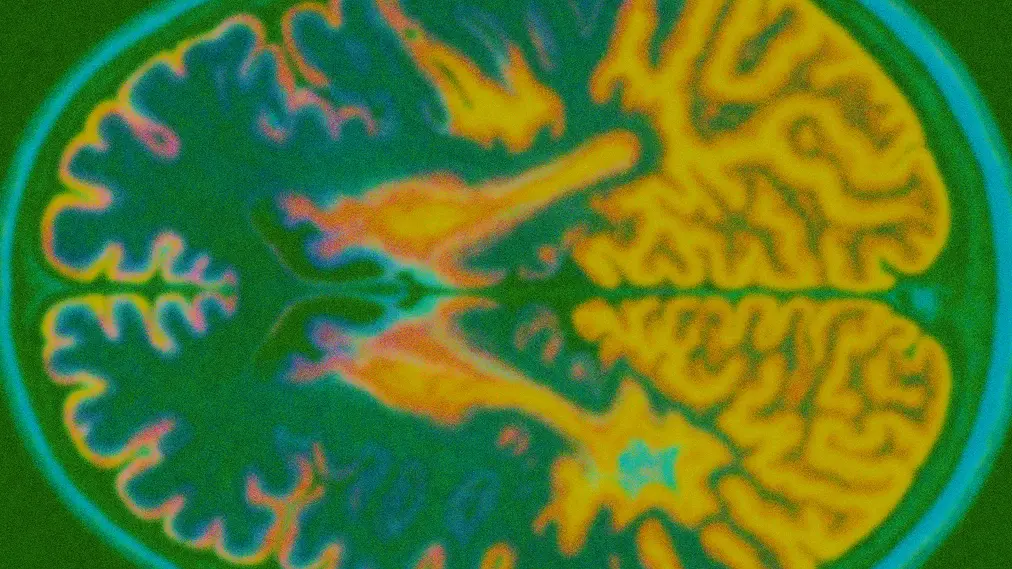L-theanine Benefits for Improved Mental Clarity and Health

Looking for a chill pill that won’t fog your brain? Try L-theanine. It's an amino acid that modulates the levels of neurotransmitters and increases alpha brain waves. This mechanism of action promotes relaxation, sharper focus, and mental clarity. Whether you’re battling stress, restless nights, or simply trying to clear the mental clutter, L-theanine might be the supplement your routine truly needs.
I’m a Type-A woman to my core. Whether it’s parenting, managing our household, or my career, I’m wired to keep everything firmly and completely under control. Some would say I seriously need to chill—and they’re not wrong. My mind is always racing and I’m constantly multitasking. It wears on my patience, impacts my sleep, and affects how present I am with the people I care about.
Fortunately, I’m a registered dietitian and wellness enthusiast, so I know there are lifestyle changes that can help—L-theanine being one of them. In this article, we’re breaking down the science behind L-theanine, its benefits, and why it might be exactly what you need to reclaim your calm and sharpen your focus.
What is L-theanine?
L-theanine is an amino acid primarily found in tea leaves. It’s best known for keeping folks cool and collected. “What L-theanine is known for is its calming effects on stress. I think a lot of people are feeling stressed these days and looking for natural ways to support their health,” says Melissa Groves Azzaro, RDN, LD, The Hormone Dietitian®.
Thanks to its stress-relieving properties, L-theanine is a common ingredient in dietary supplements formulated to promote relaxation, reduce anxiety, and improve mental clarity. You’ll find L-theanine in nootropics (cognitive enhancers) and in sleep aids, where it helps encourage deeper, more restorative sleep.
What does L-theanine do in the body?
L-Theanine has a pretty cool way of working once it’s in your system. It crosses the blood-brain barrier to help regulate neurotransmitters, the chemical messengers in your brain that are responsible for mood, relaxation, and focus.
What makes L-theanine especially interesting is its structure, which is similar to glutamate, the brain’s main excitatory neurotransmitter (the ones that get your brain cells to fire signals). Because of this similarity, L-theanine can block glutamate from binding to its receptors and prevent it from over-activating your brain, which helps create a calm, balanced mental state.
L-theanine also increases the production of GABA, dopamine, and serotonin (other neurotransmitters) in the brain, which regulate mood, sleep, attention, and focus. “L-theanine can interact with and enhance the effects of serotonin (the happy neurotransmitter) and dopamine (the pleasure and focus neurotransmitter), so the effect is a sense of calm focus,” says Azzaro. That’s why many people turn to L-theanine to feel more relaxed and clear-headed without the grogginess.

Benefits of L-theanine
We’ve established that L-theanine can help produce that sought-after zenned-out vibe, but there’s more to it. Let’s dive into the science behind L-theanine health benefits that explains why it’s earned such a loyal following.
1. Improved cognitive function, mental clarity, and memory
L-theanine is commonly included in nootropic supplements (brain boosters) due to its neuroprotective properties. It safeguards brain cells (neurons) from damage caused by neurotoxic agents and supports the brain’s ability to process the building blocks needed to produce neurotransmitters that enhance focus and attention.
Building on this, L-theanine also boosts the production of neurotransmitters like GABA, dopamine, and serotonin, further strengthening cognitive function. In fact, a randomized placebo-controlled study with older adults showed that a single dose of L-theanine improved attention, working memory, and executive function. Participants responded faster to attention tasks, provided more correct answers, and made fewer errors on memory tests. Pretty impressive for one dose.
2. Reduced stress and anxiety
If you’re anything like me and could use a little help relaxing (or a lot!), here’s how L-theanine can help. It works by enhancing alpha brain waves, which are linked to a state of relaxed alertness—helping your mind stay sharp while fostering a calm, peaceful feeling.
The key to L-theanine' effectiveness is its ability to cross the blood-brain barrier, allowing it to directly influence brain chemistry. It helps regulate the neurotransmitters GABA, serotonin, and dopamine, which play essential roles in managing mood, promoting relaxation, and mental health. This balance can reduce stress and anxiety, making it easier to stay centered even when life gets hectic.
These benefits aren’t just theoretical. Research shows that L-theanine can help lower your heart rate and sharpen focus in healthy people with high anxiety. Thinking about my own anxious moments, that kind of support sounds exactly like what I’d need to feel more grounded and in control when my thoughts start racing.
In another study involving participants with generalized anxiety disorder (GAD), L-theanine improved sleep quality and reduced insomnia symptoms, highlighting its potential for supporting both mental and physical relaxation. It’s yet another reason why L-theanine can be a valuable tool when anxiety leaves you feeling tense, restless, and wound up.
For longer-term stress management, a systematic review found that taking 200 to 400mg of L-theanine per day can help reduce stress and anxiety, especially in people navigating stressful situations. Another randomized controlled trial showed that L-theanine helped improve stress-related symptoms like depression, anxiety, and sleep disturbances, while also enhancing cognitive function.

3. Better sleep
When you don’t get enough sleep, you feel it—mentally, physically, emotionally, everything feels off. Add stress, anxiety, or other mental health struggles to the mix, and quality zzzs become even harder to come by.
Luckily, L-theanine shows promising results when it comes to sleep quality. “It enhances the transition to sleep by promoting a more relaxed state, though it does not act as a sedative,” says Marcie Vaske, MS, LN, CNS. It works by boosting GABA, dopamine, and serotonin levels which influence sleep and relaxation. That’s why L-theanine is commonly used to help with sleep disturbances, improve non-rapid eye movement (NREM) sleep, and lower psychological stress that can keep you up at night.
Studies suggest that L-theanine can help you fall asleep faster, wake up feeling more refreshed, and improve overall sleep quality. In one randomized controlled trial involving healthy participants with stress-related symptoms, researchers found that four weeks of L-theanine supplementation led to significant improvements: participants reported less depression and anxiety, better sleep quality, and showed cognitive gains in areas like verbal fluency and executive function.
Additionally, those taking L-theanine experienced greater reductions in specific sleep problems—like difficulty falling asleep, nighttime disturbances, and dependence on sleep aids—compared to the placebo group. In short, if stress and an overactive mind are sabotaging your nights, L-theanine might be the missing piece in your bedtime routine.
4. Supports cancer therapy
L-theanine may play a role in cancer treatment. In animal studies, when combined with the chemotherapy drug doxorubicin (DOX), it helped the drug work better against tumors that typically don’t respond well to treatment. By increasing the amount of DOX that reached metastatic cancer cells, L-theanine improved the drug’s effectiveness. Additionally, because L-theanine binds to glutamate receptors, it stops the chemotherapy drug from being expelled by cancer cells, allowing more of the drug to remain inside and effectively target the cancer. Preliminary findings also suggest that L-theanine may have anti-cancer activity in the reproductive and digestive systems.
That said, research is still in the early stages, and more studies, especially human clinical trials, are needed to really understand how L-theanine might improve cancer treatment. It’s also important to note that L-theanine can negatively interact with many medications, including chemotherapies. If you’re currently undergoing cancer treatment, always consult your doctor before adding any new supplement to your routine.
5. Increased immune function
L-theanine supplements may support your immune system in several ways. To start, it can help balance the immune cells after high-intensity endurance exercise. When athletes overtrain, it can result in fatigue and poor performance, which weakens the immune system. L-theanine supplements may restore immune balance by stimulating the immune response, inhibiting the inflammatory response, and reducing immunosuppression.
L-theanine may protect against the flu and cold by improving immune cell activity. In fact, one study found that, in an elderly population, supplementing with both L-theanine and L-cysteine before the influenza vaccine led to an improvement in the body’s response to the flu vaccine. Something to think about if you’re an avid gym goer or frequently catch the cold and flu bugs.
6. Lower blood pressure
L-theanine also helps your blood vessels relax. When you’re stressed, your body triggers the nervous system to release hormones that narrow blood vessels and increase blood pressure. L-theanine helps dial down that stress response by keeping you and your blood vessels relaxed. In fact, a small study found that L-theanine reduced anxiety and helped prevent spikes in blood pressure in people who react strongly to stress.
Similarly, caffeine also makes your blood vessels constrict, which can raise your blood pressure. In a study where people took L-theanine along with caffeine (about the same amount found in one or two cups of tea), L-theanine helped cancel out caffeine’s usual vasoconstrictive effect (the narrowing of blood vessels) which improved blood flow.
7. Decrease in depression symptoms
When L-theanine crosses the blood-brain barrier, it has the potential to influence mood and perception. In a small open-label study (non-blinded study), people with major depressive disorder (MDD) showed improvements in their depressive symptoms after taking L-theanine. However, since this wasn’t a blinded trial, more high-quality research is needed to confirm these results.
8. Emerging benefits
Preliminary research, though still limited, suggests that L-theanine may offer several promising health benefits, such as:
- Metabolism regulation: L-theanine may regulate how our body metabolizes and absorbs macronutrients. It can help regulate glucose (sugar in carbohydrates), lipids (fat), and protein to help maintain energy balance, which may have positive effects on conditions like obesity and type 2 diabetes.
- Protects the liver: In animal studies, L-theanine reduced inflammation and scarring in the liver of rats with cirrhosis (advanced stage of liver damage and scarring).
- Enhances kidney health: In rats, L-theanine may support the kidneys by reducing oxidative stress and maintaining kidney function. It may also protect the kidneys from damage caused by DOX, a chemotherapy drug.
Essentially, we need more human studies before we can make any bold claims. We’re here for the science as it unfolds.

Is L-theanine safe?
L-theanine supplements are generally considered safe for most people. However, it’s important to consult your healthcare provider before starting a new supplement, especially if you’re addressing specific concerns like cognition, mental health, sleep, and stress, or if you have a diagnosed medical condition.
- Medication interactions: If you’re taking sleep aids or medications with sedative effects, consult your healthcare provider before using a L-theanine supplement, as it may enhance drowsiness.
- Pregnancy and lactation: If you’re pregnant or breastfeeding, avoid supplements with L-theanine. Not enough research is available to support its use during this sensitive time.
How much L-theanine should you take per day?
There’s no official recommended daily dose of L-theanine, but research provides some guidance. “Studies have shown that doses of 200 to 400 mg a day for up to 8 weeks are safe and effective for anxiety, sleep, and stress," says Azzaro. As with any supplement, it’s best to consult a healthcare professional to determine the right dose for your specific health needs.
When to take L-theanine
“You can take L-theanine at any time during the day,” says Groves Azzaro. For promoting relaxation and reducing stress she recommends taking it about two hours before bedtime. If you’re looking for a sense of calm focus during the day, take L-theanine in the morning.
L-theanine side effects
While L-theanine itself hasn’t been linked to significant side effects, consuming large amounts of tea (the primary source of L-theanine) with caffeine can lead to:
- Nausea
- Irritability
- Sleep issues
- Headaches
- Gastrointestinal discomfort
L-theanine forms
L-theanine supplements come in a variety of forms, including capsules, chewables, gummies, powders, and liquids. Choose the form that best suits your preferences and lifestyle. If you’re looking for a quick and convenient option, capsules or chewables (or soon to come Fixie Dust) may be best for you. Powders and liquids are intended to mix with foods and are a good fit if you prefer a palatable option or don’t like swallowing pills.
L-theanine and caffeine
If you’ve ever kicked off your day with a cup of tea, you’ve probably experienced the combined effects of L-theanine and caffeine, two natural compounds that help boost focus and attention.
Caffeine is well-known for its ability to wake you up and keep you focused—something every busy parent or professional can appreciate. It does this by blocking certain receptors in the brain (called adenosine receptors), which increases the activity of neurotransmitters like acetylcholine and dopamine, which improves attention.
One study found that when people took 97mg of L-theanine with 40mg of caffeine, they had better attention and felt more alert and less tired. A 2021 systematic review of multiple studies showed that this combo can improve short-term attention, overall cognition, memory, and hyperactivity.
L-theanine and Fixie Dust
We’re on a mission to zap brain fog, and that’s why L-theanine is a star ingredient in Fixie Dust sticks. Each serving packs 200mg of this brain-boosting wonder, to help improve memory, focus, and attention, and tackle the stress that’s cloggin’ your noggin.
"We chose L-theanine because it’s one of the most trusted focus ingredients out there—safe, well-studied, and shown in human trials to sharpen attention,” says Derek Flanzraich, Fixie Dust Co-Founder and CEO and writer of weekly newsletter 5HT. “It’s the rare ingredient that helps you feel calm and clear, which is exactly the vibe we wanted Fixie Dust to deliver." With L-theanine at its core, Fixie Dust is designed to help you stay alert and productive without the anxious jitters, giving your brain the clarity it deserves.
The bottom line
If you’re looking for a natural way to reduce stress, stay calm, and improve your attention and focus (without relying on energy drinks or sleep-inducing sedatives!), L-theanine could be the solution you’re looking for. Fixie Dust sticks make it easy to get your daily dose. Sprinkle the powder in your mouth (maybe even under your tongue), let it absorb, and power through your day, crushing your to-do list and everything else that *dares* to get in your way.
Key takeaways
- L-theanine is an amino acid primarily found in tea, and it promotes sleep, relaxation, focus, and attention.
- It regulates neurotransmitters in the brain and enhances alpha brian waves to calm your brain while also influencing mental focus and mood.
- L-theanine is generally considered safe for most people, but you should consult your healthcare provider before adding any new supplement to your routine.
- Consider an L-theanine supplement to support your focus, mental clarity, and attention throughout the day.
Frequently Asked Questions
According to Azzaro, a daily dose of 200 to 400 mg of L-theanine may help improve anxiety, sleep, and stress.
L-theanine helps calm and relax you without a sedative effect and does not cause drowsiness.
According to Azzaro, you can typically start feeling the effects of L-theanine within 40 minutes to one hour after taking it, lasting up to 8 to 10 hours. This makes L-theanine particularly useful for both daytime focus and evening relaxation.
Although L-theanine is primarily found in tea, which naturally contains caffeine, L-theanine itself does not contain caffeine.
“Clinical trials have demonstrated that L-theanine can significantly reduce both subjective stress and salivary cortisol levels after exposure to stressors,” says Vaske. A randomized, double-blind, placebo-controlled crossover study found that a single dose of L-theanine led to a significant reduction in salivary cortisol and stress in healthy adults.
However, both a 2019 study and 2024 study found that L-theanine had no significant effect on cortisol levels. These findings suggest that L-theanine could be helpful for managing short-term stress and cortisol spikes, potentially through mechanisms beyond cortisol regulation (like regulating “feel good” neurotransmitters). More research is needed to fully understand how L-theanine influences cortisol and stress.
There’s no difference—theanine and L-theanine are the same amino acid.
Both ashwagandha and L-theanine may help with stress, but they work in different ways. However, while ashwagandha has a long history of use, there isn’t much strong scientific evidence yet to fully support its benefits, especially for long-term use.
On the other hand, L-theanine is an amino acid that is well-documented to support relaxation, sleep, and calm by regulating neurotransmitter activity and by enhancing alpha brain waves.
Both L-theanine and tyrosine are amino acids that have cognitive-enhancing effects. Tyrosine is an amino acid that builds protein molecules and is found in protein-rich foods such as meat, eggs, dairy, and nuts. Some studies, though limited, suggest that taking tyrosine might help improve memory during challenging mental tasks.
Latest Posts


%20(1).JPG)




.svg)


.jpg)
